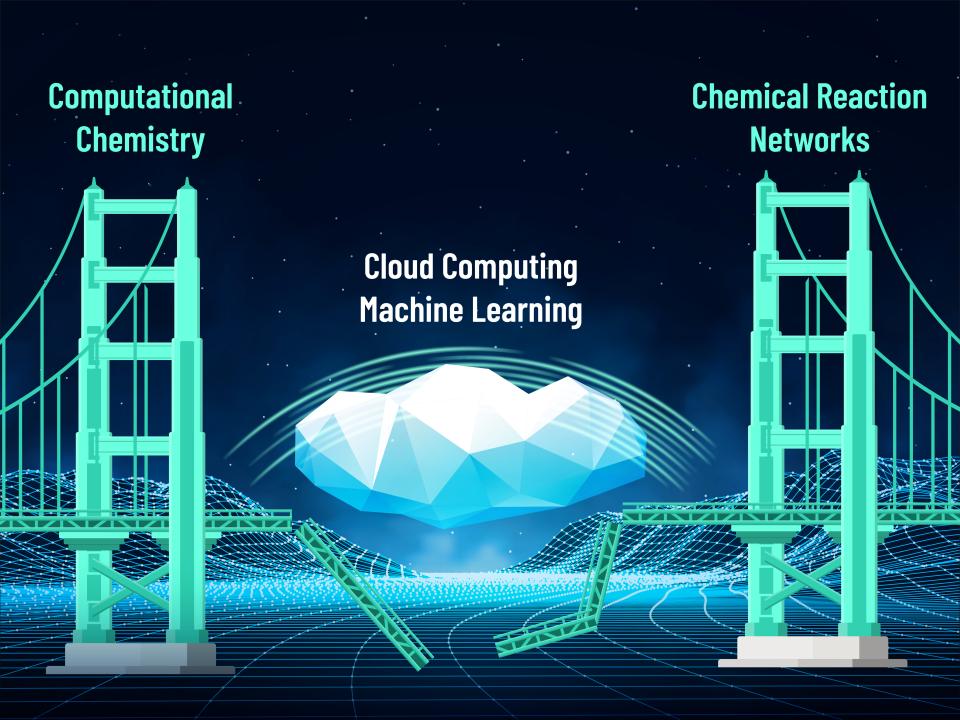Thrust 3: Computational Chemistry as a Service and Applications
Lead: Eric Bylaska
Goal: Facilitate the implementation of computational chemistry as a service (CCaaS) workflow across a diverse range of applications and user requirements.
Developing CCaaS is a complex task with an end goal focused on providing researchers access to a stable computing environment and numerous containerized projects. The CCaaS platform with capitalize on developments across TEC4 to create a broad range of computational chemistry tools that will enable users to learn, employ, and extend state-of-the-art techniques. The platform will be flexible enough to accommodate problems both large and small, building a collaborative community centered around using high-performance cloud computing.
3.1 Development of CCaaS Workflows for Chemical and Materials Applications
A key aspect of the TEC4 approach to developing workflows involves considering the needs of researchers with diverse resource levels and goals. Part of this work involves training the next generation of computational chemists to use these tools during their time as students, preparing them for both industrial and academic work in the proposed framework.
Reaction Networks
This activity focuses on creating a web-based suite of software tools that automate deriving reaction networks for complex chemical systems. We are combining multiple modeling approaches to generate network diagrams through the use of computational workflows . The workflows will involve a wide range of different calculations and optimizations, operating either sequentially or in tandem to efficiently generate comprehensive and reliable reaction networks.
Ab Initio Molecular Dynamics-X-ray Simulations
This activity focuses on enhancing, adapting, and developing workflows for ab initio molecular dynamics simulations of x-ray spectroscopies. The team will work with already established processes for extended x-ray absorption fine structure simulations and create processes for modeling x-ray photoelectron spectroscopy. This new work will combine multiple methods and adaptive workflows to develop systems suited to high-performance computing environments.
Student Training CCaaS Infrastructure
Containerized density functional theory (DFT) implementations with relevance to solving clean energy problems will be developed. These implementations will be at an appropriate level to train users in performing DFT calculations. The systems will include several prone to self-interaction errors to teach how to properly employ corrections to avoid these issues. Users will be walked through a series of calculations increasing in complexity that, as a whole, present the skills needed to perform unguided calculations on systems with multiple charge distributions.
